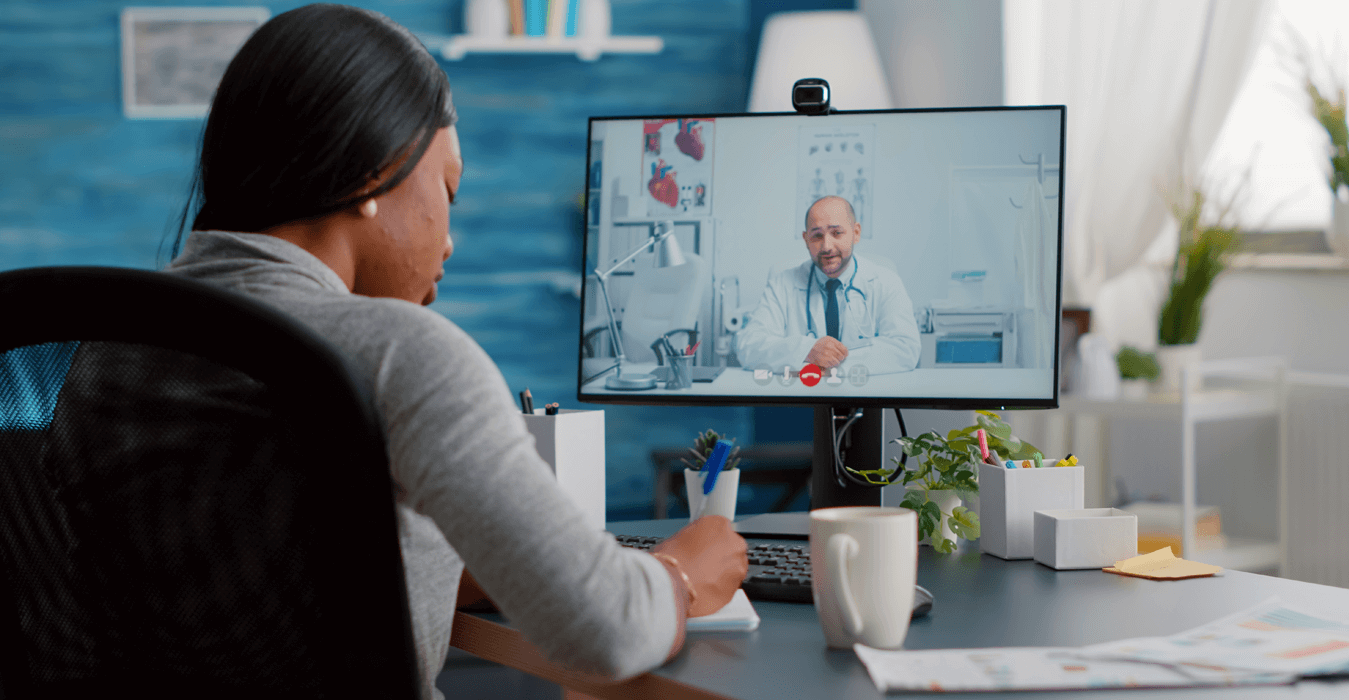Increase in the digitization of the healthcare industry
In the last two years, we have seen an increase in the digitization of the healthcare industry. According to the HIMSS Future of Healthcare Report, 80% of healthcare providers plan to increase investment in technology and digital solutions. These investments will not only support the growing demand for providers but also shine a light on skills for both healthcare and tech professionals. In this article, we break down the growing healthcare digitization trend of telehealth, also known as telemedicine. We explore the key telemedicine skills needed to support and conquer careers in both healthcare and technology.
Telemedicine
When the world went remote in 2020, there were still demands on healthcare professionals to provide support, diagnosis, and consultative care. Even veterinarian care was thrown into the deep end to determine how to treat our furry friends, remotely.
The concept of telehealth is not new. Telehealth is simply the use of digital communication via computers and mobile devices to access healthcare services. Where we saw a dramatic shift was the uptick in telemedicine – video appointments – as being an acceptable scenario for many seeking appointments with their healthcare practitioner. The swift and abrupt nature of social distancing forced telehealth technology to become more acceptable. We now see Olympic celebrities pitching for telemedicine mental health services to our own general practitioners pitching the use of an app to communicate.
SkillGigs is in the business of supporting the careers of healthcare and technology professionals. These are a few of the core skills needed to advance in telemedicine:
Healthcare Professionals [search jobs]
- Strong communication skills – telemedicine limits the ability to read body language which in some cases communicates much more than words. When having to depend on audio/visual communication, the healthcare provider must be able to put the patient at ease. The use of technology for some patients can create anxiety and many folks can be easily distracted in a non-doctor office setting. Our suggestion? Maintain strong eye contact and a positive disposition and hone in on listening skills.
- Ethical awareness – Everyone knows the privileges of a doctor-patient relationship. Telehealth will add layers of situations that extend beyond that relationship when we begin to consider data confidentiality, cyber security, digital consent, etc.
- Coaching Skills – in many instances, telehealth services require the ability to provide detailed instructions to ensure routines are followed by patients. Can you commend direction while providing steps in an easy-to-replicate manner?
Technology Professionals [search jobs]
- Ethical awareness (security & privacy) – similar to the healthcare side, for our tech professionals, there’s added pressure when dealing with an individual’s personal health information (PHI). If developers and engineers lead from a place of ethical practice, then they will be well suited to construct platforms, maintenance, and advancements in telemedicine resources. This also calls for a strong full end-to-end approach with skills in networking, data protection, and encryption services.
- IoT and AI – it’s a fair bet to call out IoT and AI in just about any industry right now. The strongest telemedicine technologies will be able to provide real-time data to patients and providers from an assortment of medical devices. Patients now can have at-home wearables that track blood pressure, temperature, glucose, heart rate, and so on to be sent to a doctor for analysis. And AI can play a major role in patient prompts during a telemedicine visit by dynamically adjusting for new inputs.
- UX and UI – Seeking out healthcare services in person or via telehealth can be an incredibly stressful and anxiety-ridden activity. As technology advances, the interface in which patients and healthcare providers engage will be critical to the overall success of the appointment. Strong UX designers should consider looking into telehealth if they are capable of thinking like a patient or a provider during a great time of need. Is the tool intuitive? Can I get to what I need in urgent situations or even non-urgent?
Our 3×3 list is short and purposeful to make one think, what are the skills needed to support telehealth? Investment in digitization in healthcare doesn’t stop here. There are plenty of reports speaking to trends in personalized medicine, genomics, and extender reality (XR), to name a few. And each of these advancements will lean into specific hard skills and soft skills. Stay tuned as we continue to explore more of these trends.




